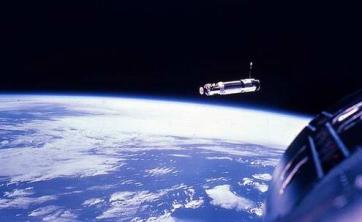 Back in the day, menstruation was a frequently cited argument for why women shouldn't be allowed to become astronauts--or fly planes of any kind. Some claimed menstruation would affect a woman's behavior and ability--some even blamed plane crashes on menstruating women! In the 1940's this theory was debunked--female pilots are not impaired just because they're on their period; however, fast forward nearly 15 years to the mid 1960's and researchers from the 'Women in Space' program still suggested that "putting a 'temperamental psychophsyiologic human' (i.e., a hormonal woman) together with a 'complicated machine' was a bad idea"--even when absolutely no evidence supported this!
Back in the day, menstruation was a frequently cited argument for why women shouldn't be allowed to become astronauts--or fly planes of any kind. Some claimed menstruation would affect a woman's behavior and ability--some even blamed plane crashes on menstruating women! In the 1940's this theory was debunked--female pilots are not impaired just because they're on their period; however, fast forward nearly 15 years to the mid 1960's and researchers from the 'Women in Space' program still suggested that "putting a 'temperamental psychophsyiologic human' (i.e., a hormonal woman) together with a 'complicated machine' was a bad idea"--even when absolutely no evidence supported this!
Beyond behavioral concerns, other researchers worried that microgravity might increase the incidence of 'retrograde menstruation'--aka blood might flow up the fallopian tubes into the abdomen--but no one conducted any experiments on this, so there was no data to support or refute these fears. Yet among all these nay-sayers, early female astronauts fought back. Indeed, Rhea Sheddon, one of the first six female astronauts at NASA argued there were plenty of unknowns the first time man went into space, but men went anyway--and she encouraged the research community to consider it a non-problem until it becomes one. It seemed women faced opposition from nearly every outlet--and in 1983, when Sally Ride went into space, the engineers asked her how many tampons should fly on a one-week flight, asking if 100 would be the right number, to which Ride responded, "No. That would not be the right number." Yikes! And amid all of these questions and confusion over what happens when a woman gets her period in space, what's the answer? Well, it's the same thing that happens on Earth!
Source: NPR
